Stars and Stripes Forever (1952)
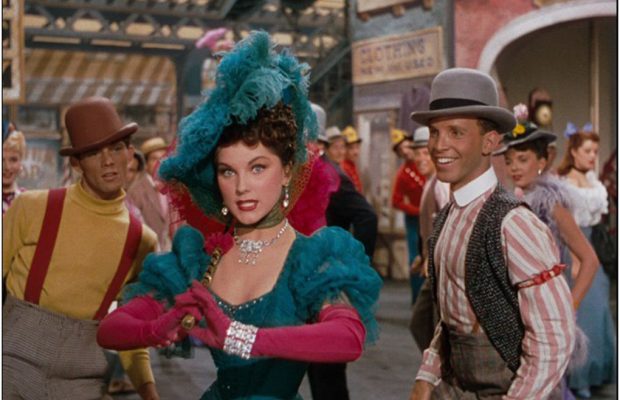
Toronto Film Society presented Stars and Stripes Forever (1952) on Sunday, October 27, 2019 in a double bill with Kiss Me Kate as part of the Season 72 Sunday Afternoon Special Screening #2.
Production Company: 20th Century Fox. Producer: Lamar Trotti. Director: Henry Koster. Music: Alfred Newman. Cinematography: Charles G. Clarke. Editor: James B. Clark. Art Direction: Lyle R. Wheeler, Joseph C. Wright. Set Decoration: Claude E. Carpenter, Thomas Little. Costumes: Dorothy Jeakins. Release Date: December 22, 1952.
Cast: Clifton Webb (John Philip Sousa), Debra Paget (Lily Becker), Robert Wagner (Willie Little), Ruth Hussey (Jennie Sousa), Finlay Currie (Col. Randolph), Roy Roberts (Maj. George Porter Houston), Thomas Browne Henry (David Blakely).
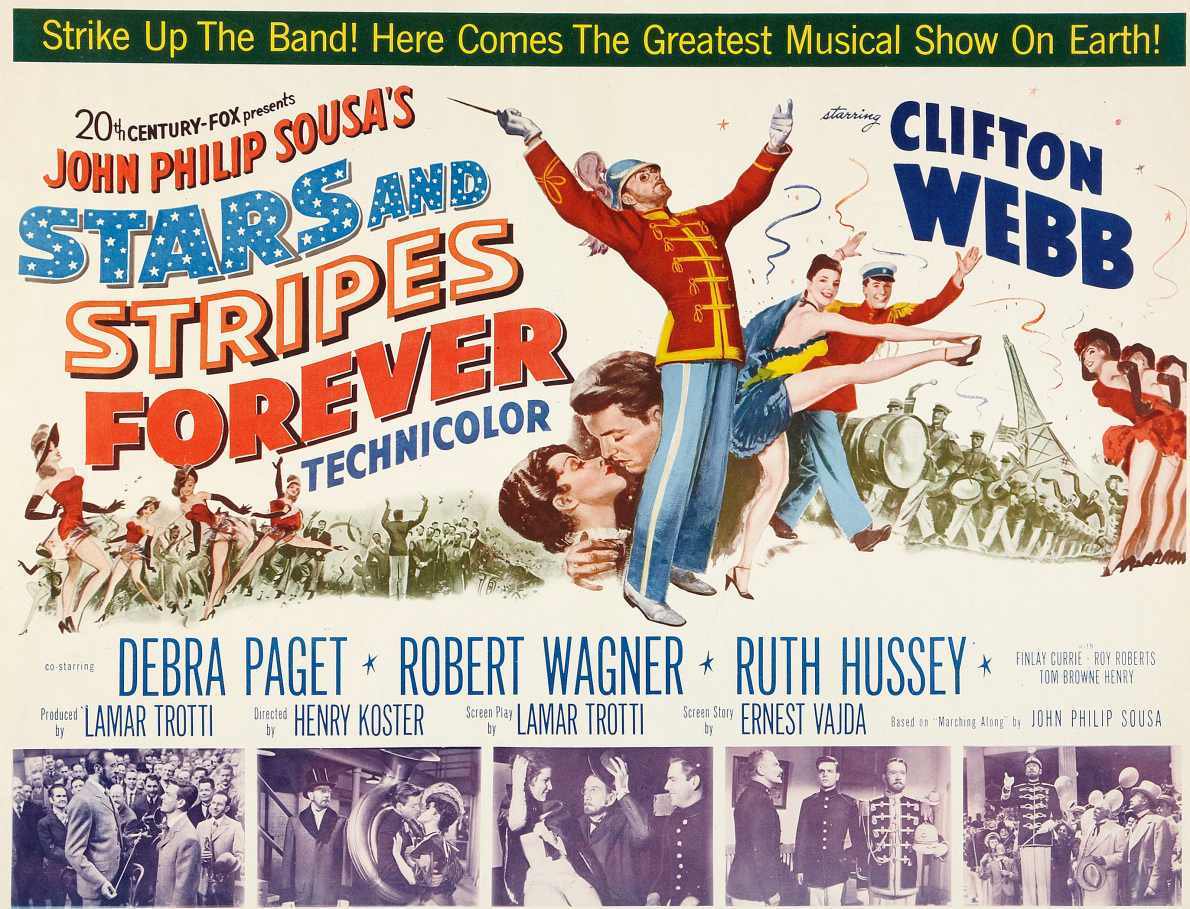
The 1952 Technicolor movie Stars and Stripes Forever probably came about in part because Hollywood was anxious to reinforce its patriotic image to both the public and the government during the disgusting McCarthy era. It was the biography of John Philip Sousa—“The American March King”—who had died twenty years earlier, in his 70s. Sousa is renowned as the composer and player of stirring patriotic marches. That said, the choice of Clifton Webb to play him was an odd one, indeed. The bandmaster was a short and stocky man of Portuguese and Spanish descent; Webb was tall and thin. In 1952, there would still be many people alive who remembered Sousa personally, including his children. It has not seemingly been recorded whether any of these people objected to Webb’s portrayal of the bandleader as arrogant, rude, fussy, and patronizing; characteristics that seemingly defined Webb himself. That said, Webb may have simply been selected by 20th Century Fox for the part because he was on the studio payroll at a high salary, and perhaps nothing else was available for him. Castings based on expediency rather than suitability are, of course, nothing new in Hollywood. That said, Webb was an extremely gifted and talented actor and presumably gave the part his best shot.
Webb was actually one of the most unlikely stars of the 1940s, having more or less had stardom thrust upon him after his success in 1944’s Laura. Webb, who by this time was middle-aged, had had a long and successful career as a stage actor; he was also a very accomplished dancer. The Indiana-born Webb had appeared in only one previous film, during the 1920s. He had been under contract with Metro-Goldwyn-Mayer for a short period during the 1930s, but for various reasons they never utilized him; however, he nevertheless collected a huge salary from them. Some ten years later, Webb was appearing in a stage production of “Blithe Spirit” in Los Angeles; Fox actor/producer/director Otto Preminger happened to see a performance and thought that Webb would be perfect for the part of drama critic Waldo Lydecker in the upcoming film of Laura, although contractee Laird Cregar was also under consideration. Preminger initially had trouble persuading Webb to agree to a screen test, but eventually did so and showed it to studio chief Darryl Zanuck. After much persuasion, Zanuck agreed to the casting, and to Preminger as director. The film was a huge success, Webb was nominated for an Academy Award, and stardom beckoned. In common with many other stage actors, before and since, the money offered was simply too good to turn down.
Clifton Webb is probably best remembered for his subsequent “Mr. Belvedere” parts, where he played a sort of male Mary Poppins role to groups of troublesome children. He also appeared in Cheaper by the Dozen (1950), about a real-life family in Montclair, New Jersey. He co-starred in Fox’s 1953 film Titanic, as Barbara Stanwyck’s unpleasant (what else?), estranged husband. However, he went down with the ship. Webb was a great friend of writer/actor/producer/director Noel Coward, who usually stayed at Webb’s elegant Bel Air house when he visited Los Angeles. In the mid-1950s, the two of them put together a television version of Coward’s classic play “Blithe Spirit”, with Webb starring and Claudette Colbert and Lauren Bacall in the main female roles. Clifton Webb died in 1966, after one final film role in Satan Never Sleeps.
Notes by John Thompson

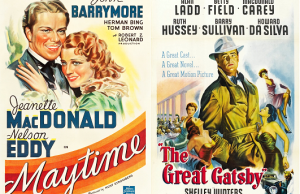
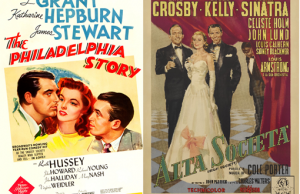
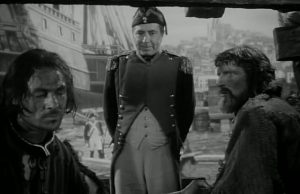






Leave a Reply